- Home
- Tim Lebbon
White and Other Tales of Ruin Page 17
White and Other Tales of Ruin Read online
Page 17
She wiped at her eyes but the tears had already ceased. Perhaps there weren’t that many left. “Then they sent him back to school with a pocketful of drugs and a flick-knife. He was expelled quickly, my Paul, expelled and arrested and beaten and arrested again and released and beaten, beaten by everyone. Helpless. I’d lost touch with him by then ... long before then … but I wouldn’t have been able to do anything anyway. I was helpless. When they found him … he was half the weight he’d been when I’d last seen him.”
“Sorry,” I said when she seemed to stop talking and fall into a trance, staring at my feet or somewhere far beyond. “I didn’t think —”
“He always wanted to be an architect,” she said. “He was nine years old when he died.” She saw me properly for the first time then, her eyes seeing instead of looking, perhaps probing to discover whether I was someone she could really talk to. “So young, and yet he knew his future so well. How can they steal that from someone so young? How could they?”
I turned back to the window after offering her an awkward smile. I thought of Laura and how, at least, she was still alive. I assumed. I had to assume.
“Hell is other people,” the grey-haired man murmured.
“And what the fuck is that supposed to mean?” I didn’t raise my voice, but I was angry.
“I’m not offering an opinion,” he said, “merely quoting.”
There was nothing I could say to that, and I felt ridiculously admonished. I glanced across at the woman but she was staring down at her hands, twisting them in her lap. In this strange light it looked as if she was kneading shadows.
I wondered how this could be helping her, and in doing so I realised that it was already making me forget my own problems. Laura was still on my mind — she would always be there — but after the woman’s horrible story my own problems felt lessened. Probably not exactly what Hell had intended … but one of my fellow passengers had greater problems than me. I often told myself that there were a lot of people worse off, but I’d never actually met them.
“Oh Jesus!” said a voice from further along the coach.
And the windows lit up again.
They were moving us through a town that was dying.
I glanced at the woman across the aisle but she was staring from her window as well, seeing all the same things, probably equally shocked.
“I never thought there was anywhere like this left,” I whispered. Nobody answered me, and I hoped that it was because they agreed rather than because they thought I was naïve.
There was a man standing at the base of a flight of steps, jabbing continuously at his arm with a needle, arcs of blood spattering the pavement at every attempt, and his mouth dribbling as he shouted I have no veins, I have no veins. Whatever was in the syringe initially must have drained away by now, but still he searched, not seeing his own life fluid leaking from him, even when he sliced the needle up and down his wrist and a group of watchers stood back so that the resulting fountain did not stain them. A pack of mangy dogs crossed the street with their tails held high and their noses low to the ground, but I turned away.
“God,” I said, glancing over to see what the woman had seen. The back of her head told me nothing.
The coach moved slowly along the street, and the people did not appear to see us. If it was a holo it was beautifully arranged. It picked up every minor facet of reality. A particular sun-glint from a dusty window; steam rising from a dog’s piss as it raised its leg against a wall; shadows sitting in the cracks in pavements, hiding from daylight like the men I could see hunkered down in shop doorways, not wishing to be a part of things.
I tried waving but no one saw, or if they did had no wish to respond. I wondered just how programmed and pre-set this was.
The buildings stared out with shattered windows. A naked woman hung from one of them, her flesh grey and bloated with time, rope digging so far into her neck that rolls of skin and flesh had closed around it. She may have been pretty in the past, but now she was a smear on the wall of the building, a fluid stain marking the masonry below her. I really didn’t want to know what that meant.
A group of men were gang-raping someone in an alley.
A dead person lay in the gutter, ignored and left for the flies and rats.
A lost child wandered along the pavement, crying, raising its hands but catching nobody’s attention.
“Sick,” I said, “this is just sick.”
But I had never been anywhere like this, hardly even imagined it. Wherever Laura was now was surely better. She wouldn’t be seeing these things, wouldn’t be subjected to such horror, no matter how much the sect brainwashed her and tried to pull her further and further from any sort of life she knew.
I retched and leaned forward, grabbed a bottle of water and tried to drown my nausea. There must have been some additive in there for such use, because I felt better within a few seconds. I strained in my seat and looked back at the mouth of the alley. There were no signs of what I had seen; at least it was out of sight now. Out of sight, out of mind, someone had once said to me. I’d wanted to hit them, because Janine had been out of sight for three years by then.
“I’m so glad places like this don’t exist anymore,” the woman across from me said.
I looked over in time to see her misted breath clearing from the window. “So you think it’s a recording?” I asked.
She glanced over and smiled. “Sure it is.” How stupid of you, her voice said, so I did not pursue it.
“Hell,” I said. “Hell on screen. So … why not just beam it to our nets?”
The woman did not answer. I heard a shifting in the seat in front of me, but the man said nothing.
Outside, more things were starting to happen in the run-down street. Isolated incidents at first — a man being beaten against a car, a young boy kneeling astride an equally young girl, knife drawn, her hair tangled in his fist — and then something more concerted, more significant. I was not consciously aware of things changing, but between one blink and the next the trouble-strewn street had opened up into a plaza. A church stood at one side, a line of rag-tag market stalls at another, and the blank walls of warehouses completed the square. A road ran through from either side.
Within seconds of the scene imprinting itself on my mind, a battle had begun.
The women carried no weapons. Their clothes were varied, their skins different shades, but each of them had the same dark expression on their face. Whatever they were fighting for, they were confident in their cause. Every point of impact resulted in the same outcome: one dead woman; one policeman splashed with blood, spark-stick drawn and buzzing as it searched for more skin to sear and break. It was a slaughter. And they hadn’t even drawn their guns.
I pressed my face to the glass, disgusted and shocked but unable to tear myself away. Had this happened somewhere in the world, some vague point in the history of an Eastern European state that my schooling had failed to touch upon? The women looked like those I’d see in the street at home — any one of them could have been Laura or Janine — and the police … they were up to date.
Totally up to date.
Body-moulding armour, shifting and flexing with each movement or muscular tick. A transparent sheen around their head which was a helmet and oxygen mask in one, solidifying micro-seconds before anything impacted upon it, parting and opening as and when necessary for the wearer to breathe or speak or eat. The spark-sticks and the drill guns. Everything I was used to.
“This is now,” I said. “This is happening now.”
Time is an illusion, came the soft voice from inside my head. Be glad you’re not here at this time.
“I’m not a woman,” I said.
For the first time the voice answered me directly. But you may have been a policeman.
I watched a woman fall to the ground and a policeman kneeling beside her, fending off her waving arms and deftly crushing and melting her throat with one glittering lunge of his spark-stick.
I s
aw how right the voice was. “Who are you?”
Be quiet, it said. Watch. It’s all part of the service.
“Anyone being talked to in here?” I shouted, and the silence from the others in the coach was my answer.
The battle erupted all around the coach but never touched it. There was murder and death and execution, but the one thing I never saw was the taking of a prisoner. These police, for whatever reason, had been instructed to simply kill. No crowd control for them, no law-enforcing, no friendly chat with someone who may have had a vague idea to break a minor law …. these were out on a subdue and destroy mission the likes of which I could never have imagined.
“Is this how it could be?” I asked, and the disembodied voice answered.
Was, could be, will be is not important. You’re not here, that is important. You’re no part of this. Be thankful.
“I am,” I said, and I was. The coach moved on, we passed scenes of terrible pain and cruelty, and I was thankful.
I began to realise how Hell could really work.
The windows went dark. I slumped back in my seat and all hint of external influences passed away. I’d been smelling the fear of that square, hearing the screams and dying sighs, tasting blood on the breeze and the tang of discharging spark-sticks. Now, with nothing more than the slight aroma of my own sweat to keep me company, it seemed all the more shocking.
“That was horrible,” I said.
“Yes.”
“What’s your name?” I asked. The woman turned to look at me.
“I’m not going to tell you. It’s personal.”
I frowned, went to tell her my name but then thought about what she’d said. We were in Hell after all, and I tended to agree. Personal. She didn’t want to get personal, and I could understand and empathise. What was happening here was way too internalised to get involved with someone just because they happened to be sitting across the aisle. Even the voice came from inside, as if I was actually hearing it somewhere else and only its meaning was being understood here.
“I’m so sorry about your son,” I said, and she averted her eyes and looked at the black window.
I leaned forward and picked up a bottle of water, changed my mind and popped the seal on a beer. The bottleneck widened and a head developed, and I took my first frothy mouthful, sighing at the synthesised real ale taste. I still didn’t know how they managed it, but it was perfect.
Closing my eyes, I leaned back in the seat. Laura surprised me and ran across my memory, laughing as a six year old and leaping on Janine’s back just months before my wife died. I remembered the day vividly. I remembered being depressed and miserable and non-communicative, because both Janine and I knew that she was dying and there was nothing we could do. Fate had done that, to Janine and to me, and I hated it. I hated that Laura would grow up without a mother. And I took out my hate on both of them, because there was nothing and no one else to suffer it.
Reliving the memory, I knew that I should have relished that moment, every moment, not lived in a haze of hate. I saw Laura’s eyes as she leapt on Janine, Janine’s smile as she caught our daughter, and I realised for the first time that my wife was as happy then as she had ever been. Her smile was not for Laura’s sake, nor for mine. It was genuine. A true statement of joy. I should have been a part of that, not apart from it.
I opened my eyes and I was crying. I wiped at the tears and took another swig of beer, and it didn’t taste as good. That was the trouble with artificiality — it could never maintain a constant. Like memories it was only an approximation of the truth.
“My daughter has been taken away by a religious sect,” I said. “I don’t know where she is and I may never get her back.”
“At least she’s alive,” the woman said.
I thought about this, wondering just how we were supposed to take this journey as a healing exercise when we could still talk. “I’m sure your son still loved you, even at the end. My Laura will have been brainwashed to forget me. Love has no place in the sects … not for anything outside, at least.”
The woman didn’t respond and I said no more. I finished my beer, each mouthful more rancid, and then I opened one of the meal containers and ate salmon in white wine sauce. It was real salmon. It melted in my mouth and released the sterile taste of mass produced fish that had never swum in a river, never known rapids. A smaller container held a slab of apple pie and custard, but once opened I could not bring myself to eat.
I suddenly felt bad, being able to eat and drink after what I had just seen. The scenes outside looked so very real. They smelled and sounded totally genuine. I’d just seen dozens of people dead and dying, and I was ready to sit back and drink bad beer and eat salmon. I looked around guiltily, but the woman across the aisle was chewing thoughtfully on a mouthful of something, and from the seat before me I could hear the unmistakeable sounds of eating and drinking. I glanced across at the woman again and caught her wry smile.
“I wonder what’s next,” someone said from further along the coach. Their voice was muffled and dull, and I wondered just how large this vehicle was. I shifted in my seat but the straps held tight, as if aware of my sudden interest in looking around.
“Titanic,” someone answered, their voice even quieter. “I’ve always wanted to see the Titanic going down.”
“Natural disasters make for good viewing,” the first voice said. “Give me a hurricane or earthquake over a war or riot any day.”
Be patient and you will see, said the voice in my head, and it must have spoken to everyone because silence fell once more.
There was a sense of movement as we were transferred from one scene to the next, but I could not tell how fast we were travelling. It wasn’t like a ship, or a hover train, or an aircraft, because there were no sounds at all to indicate that we were passing along rails or through air turbulence. The sense came from inside an occasional dipping of the stomach or a twinge in my inner ear. I wondered how far we were travelling and just how big Hell may be, when the windows brightened once again and I was faced with the answer.
Hell was huge. If it had boundaries they were scores of miles apart, at least. It had sky, and land, and dazzling sunlight. And when it came to pain, suffering and death … it knew no boundaries.
Perhaps even now Laura was being lectured in the traditional Hell, the metaphysical place where wrongdoers suffered and punishments were meted out, and where Satan presided over his flung-down domain, plotting vengeance, scheming to re-attain his rightful place amongst the angels. But however thorough her brainwashing at the hands of the cult, they could never show her this. If she were here with me now, then she’d believe. Then she’d know that Hell is of our own making, and we have been manufacturing and perpetuating it on our own planet ever since we crawled from the primeval swamp. The place I travelled through was simply a bringing together, a distillation of all bad things.
I looked from the window and felt sick.
Be glad you aren’t here, the voice purred, and I began to cry.
The coach was moving slowly, painfully slowly, across a wide open plain. In the distance a row of snow-capped mountains pointed at the sky like a giant bottom jaw. The top jaw was a line of dense strato-cumulus clouds hanging threateningly across the whole horizon, waiting to close at any moment and bite the scene away. The plain itself, for as far as I could see, writhed and flickered and shifted in and out of focus, and at first I thought my tears were distorting trees and bushes and setting them moving. But I wiped at my eyes again, pressed my face to the window with my breath held … and I saw that the movement was people.
The whole plain, every spare spread of ground, was smothered with humanity. Hunkered under trees, sitting on the sides of small hillocks, hiding beneath tarpaulins or coats pinned to upright sticks, staring up into the sky or scrabbling around in the dust for food, adults drinking from deflated water bags and children hanging onto sagging breasts, bodies coughing blood, eyes leaking blood, mouths gushing blood as people fell
to their knees and vomited, some rushing to their aid but trying not to get too close, living-dead wrapping corpses in dirty clothes and men digging long burial pits, the wrappers scratching at sores on their arms, the diggers wiping bloody red from their eyes, birds sweeping down to peck morsels from bodies left out too long after death, and sometimes from those so weakened that they could not wave the birds away, could not save their eyes or testicles or dignity in the few moments they had left in this world before passing painfully into the next …
I gasped out loud and heard similar sounds from around the coach. Even the man in front of me, all but silent and dismissive in his invisibility until now, muttered something under his breath that may have been a prayer.
And then the sounds and smells made it in from outside, and I knew that there was always worse.
Moans, cries, the stench of shit, rot, sighs, screams, muttered desperation, food gone-off, vomit, vomiting, fresh exhortations from a new volunteer helper, the disbelieving mumbles from the thousands who had seen it all before. They knew that nothing and no one could help. I saw a gaggle of nuns threading their way through the hundreds of acres of dead and dying humanity, and I almost laughed at their blind devotion and foolish belief that anything could ever be any different. One of them would stop every now and then, bend down, cross herself and a bundle of rags on the floor before moving on. I wondered how many of them would be alive next week, and how many black and white habits were already hugging corpses in the ground.
We passed by a burial pit. As ever, the diggers did not look our way we were not there, so there was nothing for them to see and I had an uninterrupted view of the hundreds of bodies piled at one end. The digging could not keep up with the dying, and even as corpses were wound in old cloth or sacking and flung into the pit, the mountain they had been taken from grew.

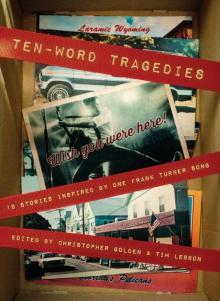 Ten-Word Tragedies
Ten-Word Tragedies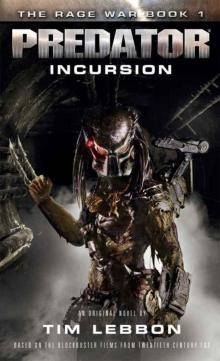 Predator: Incursion
Predator: Incursion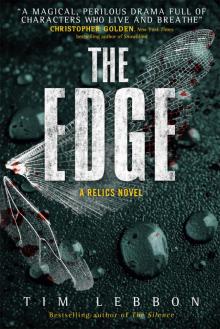 Relics--The Edge
Relics--The Edge Firefly
Firefly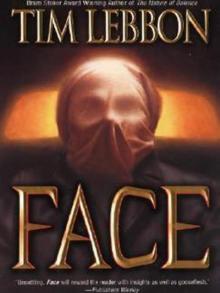 Face
Face Generations
Generations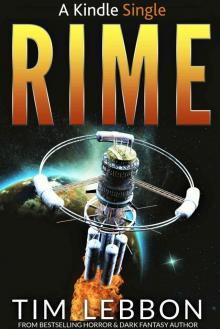 RIME (Kindle Single)
RIME (Kindle Single) Fallen
Fallen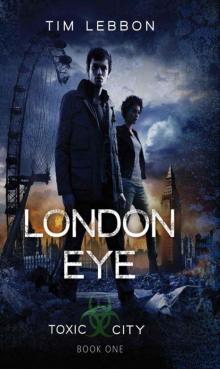 London Eye tc-1
London Eye tc-1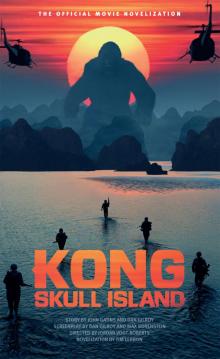 Kong: Skull Island
Kong: Skull Island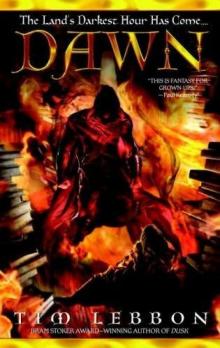 Dawn n-2
Dawn n-2 Into the Void: Star Wars (Dawn of the Jedi)
Into the Void: Star Wars (Dawn of the Jedi)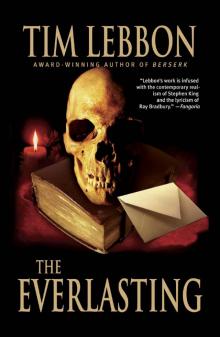 The Everlasting
The Everlasting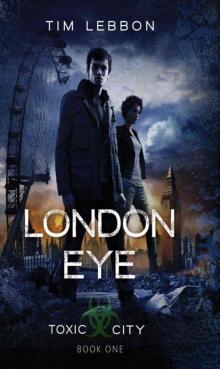 London Eye: 1 (Toxic City)
London Eye: 1 (Toxic City)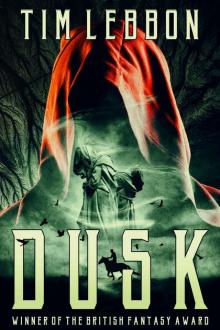 Dusk: a dark fantasy novel (A Noreela novel)
Dusk: a dark fantasy novel (A Noreela novel)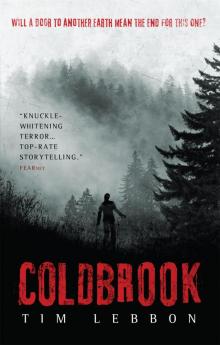 Coldbrook
Coldbrook Alien
Alien Dusk
Dusk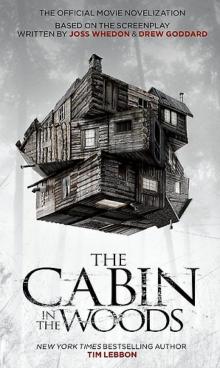 The Cabin in the Woods
The Cabin in the Woods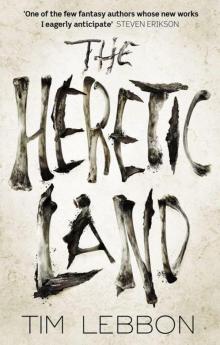 The Heretic Land
The Heretic Land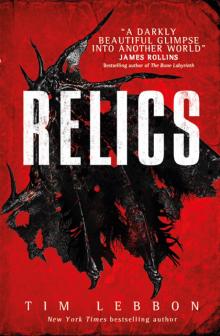 Relics
Relics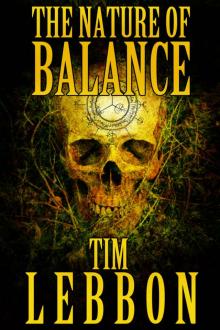 The Nature of Balance
The Nature of Balance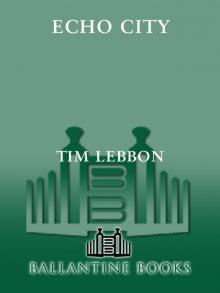 Echo City
Echo City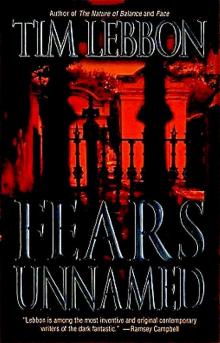 Tim Lebbon - Fears Unnamed
Tim Lebbon - Fears Unnamed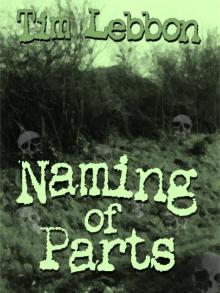 Naming of Parts
Naming of Parts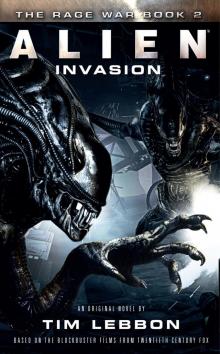 Alien--Invasion
Alien--Invasion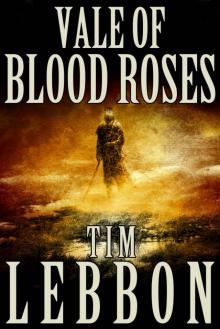 Vale of Blood Roses
Vale of Blood Roses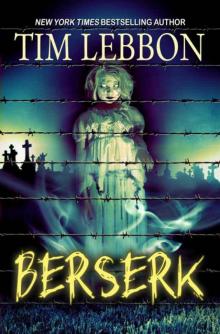 Berserk
Berserk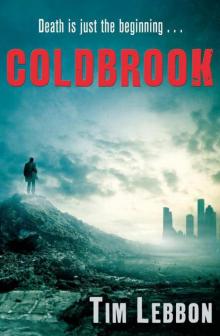 Coldbrook (Hammer)
Coldbrook (Hammer)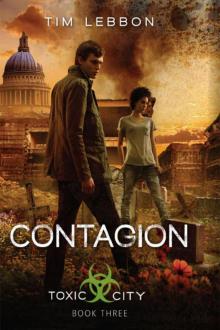 Contagion tc-3
Contagion tc-3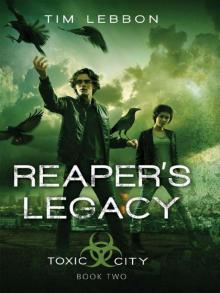 Reaper's Legacy: Book Two (Toxic City)
Reaper's Legacy: Book Two (Toxic City)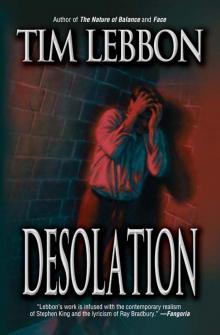 Desolation
Desolation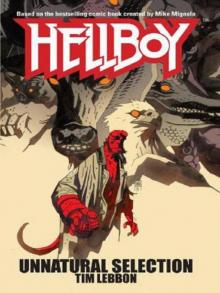 Unnatural Selection
Unnatural Selection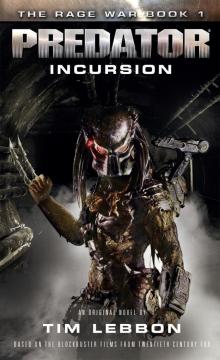 Predator - Incursion
Predator - Incursion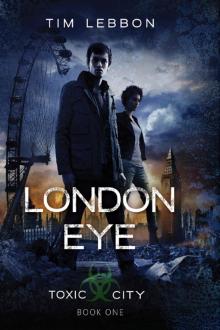 London Eye
London Eye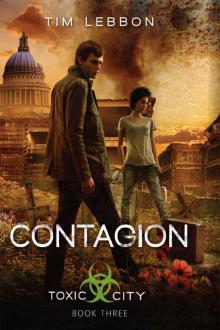 Contagion (Toxic City Book Three)
Contagion (Toxic City Book Three) The Silence
The Silence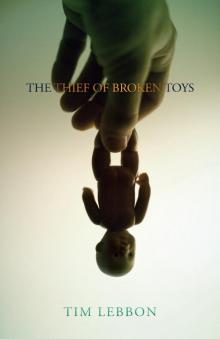 The Thief of Broken Toys
The Thief of Broken Toys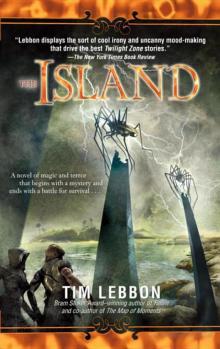 Tales of Noreela 04: The Island
Tales of Noreela 04: The Island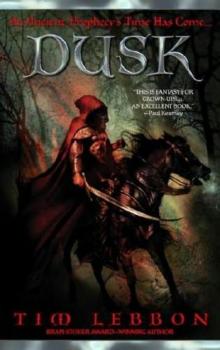 Dusk n-1
Dusk n-1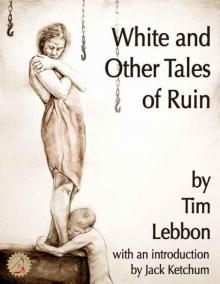 White and Other Tales of Ruin
White and Other Tales of Ruin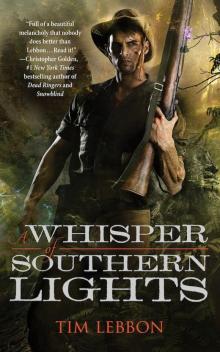 A Whisper of Southern Lights
A Whisper of Southern Lights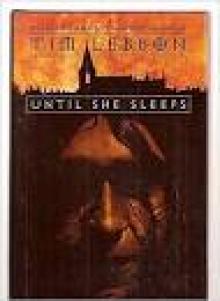 Until She Sleeps
Until She Sleeps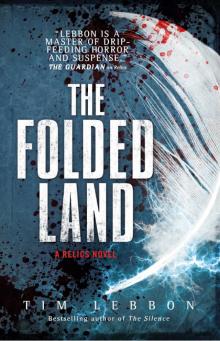 Relics--The Folded Land
Relics--The Folded Land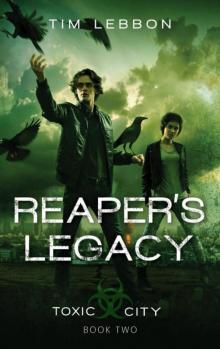 Reaper's Legacy tc-2
Reaper's Legacy tc-2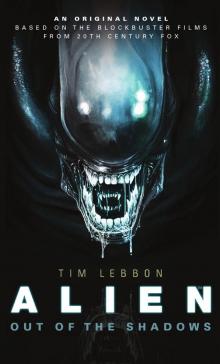 Alien: Out of the Shadows
Alien: Out of the Shadows Pieces of Hate
Pieces of Hate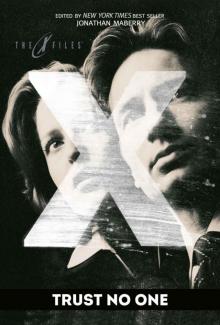 X-Files: Trust No One
X-Files: Trust No One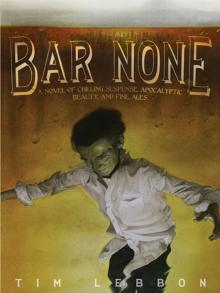 Bar None
Bar None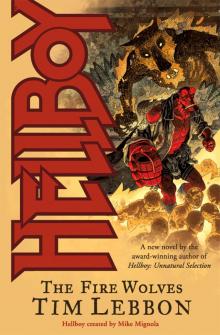 The Fire Wolves
The Fire Wolves